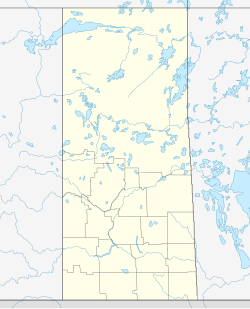Saltcoats | |
|---|---|
Town | |
Location of Saltcoats in Saskatchewan | |
| Coordinates: 51°2′0″N102°10′0″W / 51.03333°N 102.16667°W | |
| Country | Canada |
| Province | Saskatchewan |
| Rural Municipality | Saltcoats No. 213 |
| Post office established | December 1, 1888 |
| Village organized | April 4, 1894 |
| Town proclaimed | 1910 |
| Government | |
| • Mayor | Grant McCallum |
| • Federal Electoral District MP | Gary Breitkreuz |
| • Provincial Constituency MLA | Bob Bjornerud |
| Area | |
| • Land | 1.35 km2 (0.52 sq mi) |
| Population (2011) [1] | |
• Total | 474 |
| • Density | 352.2/km2 (912/sq mi) |
| • Summer (DST) | CST |
| Postal code | S0A 3R0 |
| Area code | 306 |
| Website | Official website |
| [2] [3] | |
Saltcoats is a town in east-central Saskatchewan near the Manitoba border in Canada. The town's population was 474 in 2011. It was built in the late 19th century, and its economy was driven by the railway. There is no longer a passenger service to the town.


